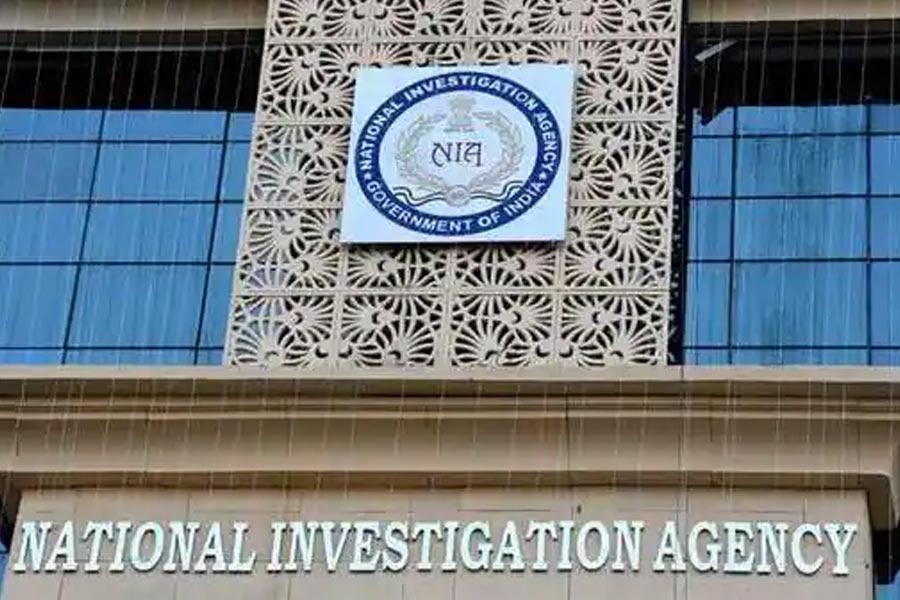A People’s Democratic Party leader, once described as a youth icon by Rajnath Singh but now accused of terror charges that he denies, has been refused the one-year permission he had sought to accompany his cancer-ridden father for treatment in Mumbai and Delhi.
PDP youth leader Waheed ur Rehman Para had earlier in June been denied permission to travel abroad for a three-month Yale peace fellowship.
His father Ghulam Ahmad Para has fourth-stage metastatic squamous cell carcinoma, his travel plea said, as recorded in the NIA court order that issued the latest refusal. Ghulam has so far been travelling for cancer treatment with other companions.
The PDP leader has been booked under the anti-terror law UAPA for allegedly supporting “terrorist activities”. He claims political victimisation.
As part of his bail conditions, the high court has prohibited him from leaving Jammu and Kashmir without permission from the trial court.
NIA special judge Sandeep Gandotra ruled that granting Para’s request for “blanket permission” to travel to Delhi and Mumbai for a year would hinder the trial. The judge said there was genuine concern that Para might try to flee the country.
Yale University of the US had named Para as the 2023 peace fellow at its International Leadership Centre, appearing to hand out a rebuke to India’s top investigative agencies that had kept him behind bars for months on terror charges.
Yale’s Jackson School of Global Affairs had hailed Para as a great advocate of peace and democracy. “Para, a native of India, is a political leader, who has dedicated his life to the cause of strengthening democracy and peace in Kashmir,” the citation said.
The NIA court, however, flagged what it considered a dichotomy in Para’s travel applications. Para had applied for permission to travel to the US for three months for the Yale fellowship, knowing well that his father was “suffering from a serious medical condition”, it said.
Para had been held in jail for six months, along with thousands of others, during the clampdown that accompanied the dilution of Article 370 in 2019.
He was again arrested in November 2020 by the NIA, this time on terror charges, for his alleged links to DSP Devinder Singh and Hizbul Mujahideen commander Naveed Babu. Singh, a top counter-insurgency cop, was arrested in 2020 for allegedly ferrying Babu and an associate in his car.
The NIA described Para as a crucial player in sustaining “political-separatist-terrorist nexus in J&K”. But on January 9, 2021, an NIA court ruled that the UAPA did not apply to his case and granted him bail.
Para was not released as the State Investigation Agency came up with a fresh charge – that he had hatched a criminal conspiracy with militants for political gain. This time he spent 18 months in jail before receiving bail from the high court, which said the evidence against him was “too sketchy”.
Last October, the Supreme Court dismissed a petition from the Jammu and Kashmir government challenging his bail.
In 2018, when Rajnath was Union home minister, he had described Para as a youth icon. Para enjoyed unbridled access to the Union home ministry during PDP-BJP rule in Jammu and Kashmir (2015-18).
As secretary of the then state’s sports council, Para had organised a huge audience of sports enthusiasts at an event for Rajnath in Srinagar, a rare occurrence for any politician those days.
In June 2021, the UN’s working groups on human rights and special rapporteurs revealed chilling details of Para’s alleged torture by the NIA – apparently a reprisal for speaking out against atrocities in Kashmir before UN representatives.











